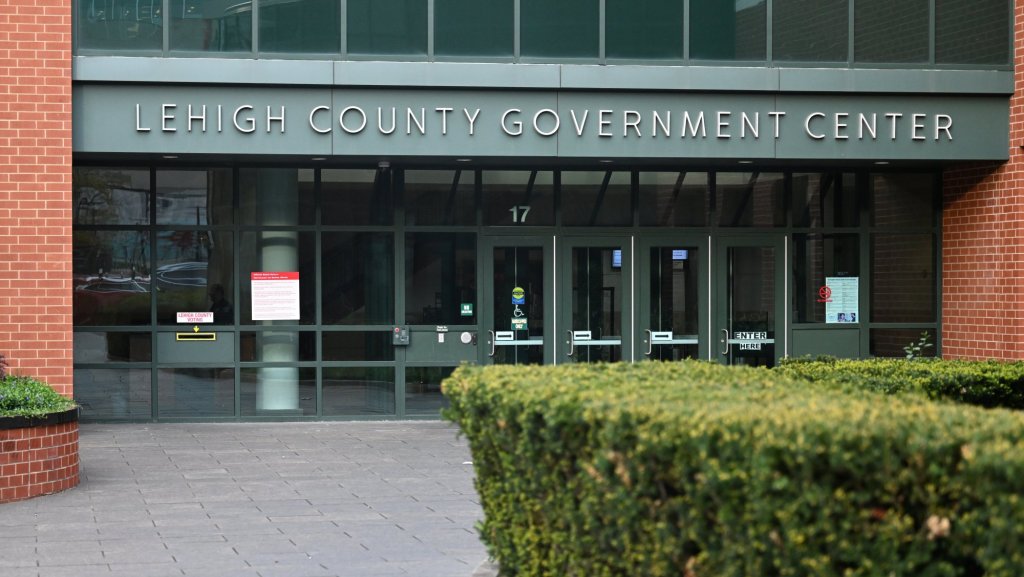In a less uneasy time, Lehigh County Commissioner Jon Irons might have voted against the 2026 budget, but on Wednesday he signed off on it with the other eight commissioners.
The economic anxiety provoked by federal spending cuts and the stubborn state budget impasse were enough to push Irons past his misgivings about the $538 million plan, which maintains the current property tax rate of 3.78 mills.
“Any budget without a tax increase is not fiscally responsible,” said Irons, who is concerned that recent years of reining in spending in the interest of maintaining the tax rate is dangerous when social programs — the housing affordability crisis, mental health treatment, homelessness — are increasingly desperate for more support.
The 2026 property tax rate amounts to $1,025 a year for the owner of a home valued at the county’s median price of $271,400.
Commissioner Ron Beitler said keeping the tax rate steady is important to people on low or fixed incomes whose cost of living is rising everywhere else.
“The biggest and most effective social program we can enact” is keeping people in their homes,” he said.
Commissioner Geoff Brace acknowledged the budget doesn’t address what he called the “big-picture issues” cited by Irons. However, he added, “there’s a lot of volatility in the environment and right now some sense of stability in what the county can provide is the most prudent approach.”
The vote came after another discussion of how the county is dealing with the continued lack of state funding for programs as the state Legislature remains mired in a budget impasse, three months after one should have been adopted.
With the county burning through its $25 million stabilization fund to keep services running, the next step is to take a loan that will be paid back once state funding starts to flow again.
Tim Reeves, the county’s chief fiscal officer, said money borrowed now would have to be repaid by the end of the year, with a second loan taken out in January.
“Instead we are going to manage our finances very tightly from now through the end of the year with the anticipation of closing on a loan around Jan. 2,” he said.
“We believe we can get through the end of the year cash-wise,” he added, noting that some counties with insufficient reserves are being forced into the two-loan solution.
The loan would likely be $40 million to as much as $60 million, he said. That would allow the county to replenish its reserves and give it a spending cushion in the event the budget impasse drags on.
Commissioners all but rejected a suggestion from Mark Pinsley, the county controller, that they temporarily withhold certain payments sent to the state, including the roughly $5 million in costs and fees collected annually at magisterial district courts and more than $30 million in human services payments.
Temporarily retaining these payments could offset interest costs from a loan, Pinsley said in a statement when he proposed the idea.
“This is not just about numbers on a balance sheet,” he wrote. “When the state withholds funding, it directly impacts programs that protect children, support families in crisis, provide mental health care, and ensure older adults receive the help they need.”
Reeves said the withholding payments might have value as a protest but noted the state can punish counties with fines and demand interest on late payments. Solicitor Catharine Roseberry said the penalties can be steep, especially in regard to human services.
“If we do not make those payments it is a $1,000-a-day penalty,” she said. “Not paying them will also be a problem for us.”
Reeves said the state has little incentive to bargain over the budget because it is accruing interest on the money it hasn’t sent to counties.
“The money the state is withholding right now will add $20-$30 million in interest to their budget,” he said.
“I really hope that someone recognizes the chaos this has truly created across the state and brings forth a bill saying either [county money] continues to get paid through an impasse but also when the impasse is resolved, you pay the money with interest,” he said.
That idea and others will be discussed at a November meeting of the finance committee, the board decided.

